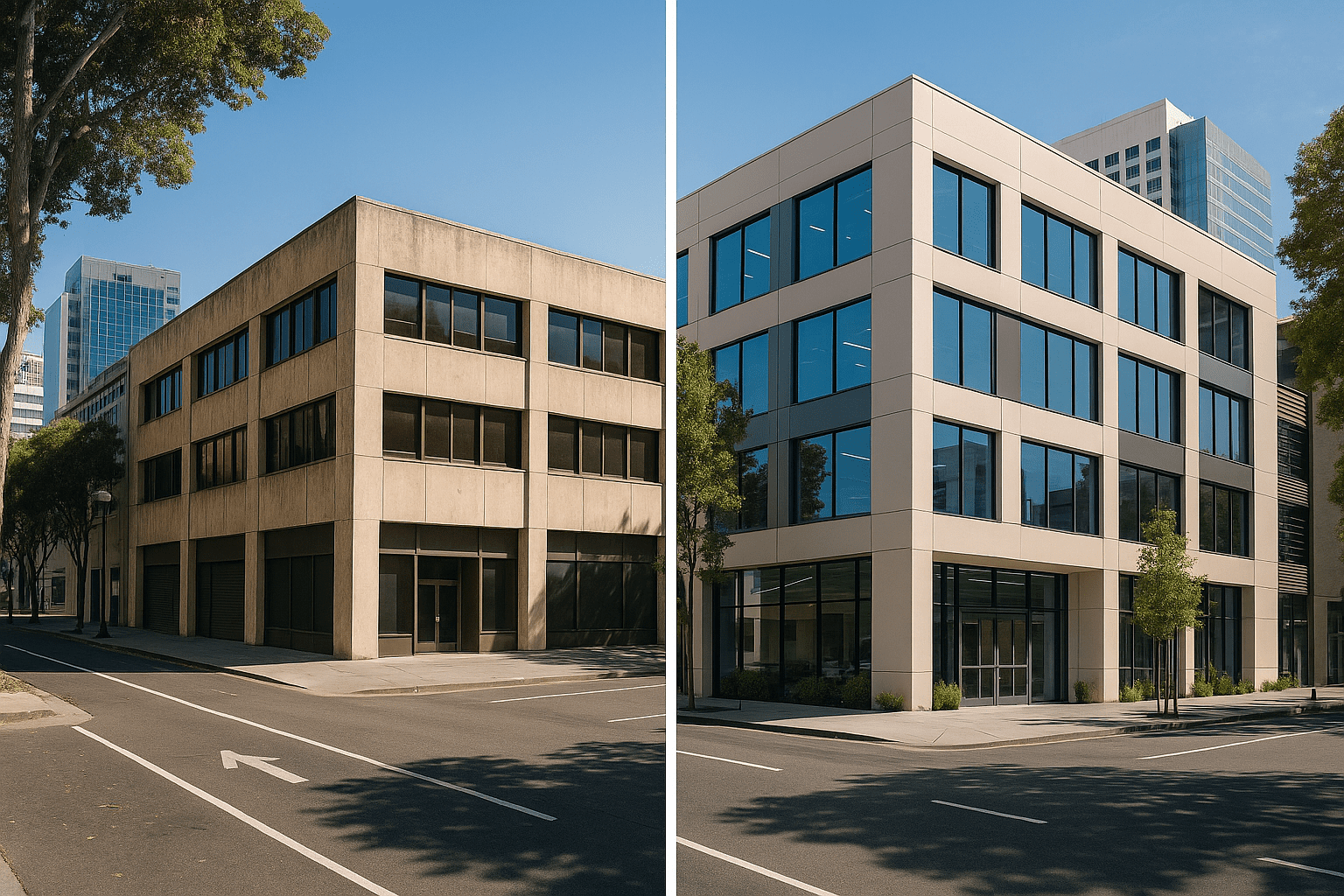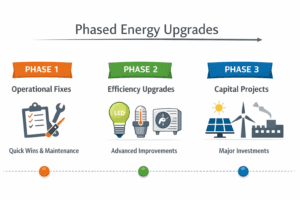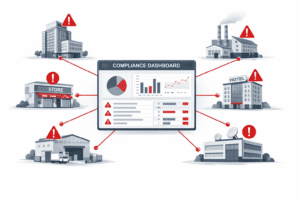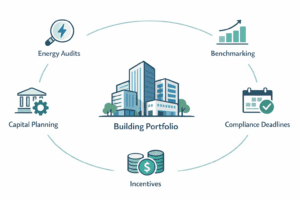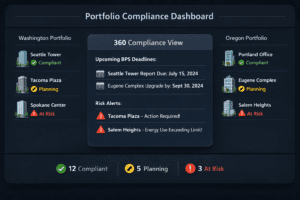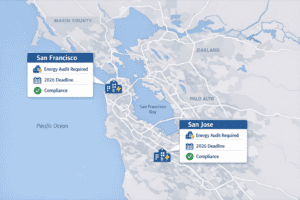In Q3 2025, San Jose’s audit enforcement is surging—and unprepared building owners are already paying thousands in penalties. San Jose has begun issuing non-compliance notices under the San Jose Building Performance Ordinance 2025, and fines are hitting hard—sometimes $5,000 or more. Q3 is your strategic window to get compliant while top auditors are still available, costs are stable, and timelines are in your favor. Wait until Q4, and you’ll face higher prices, fewer options, and a race against the clock.
San Jose Compliance Surge: Why Q3 Is the Smart Audit Window
Q3 is when smart San Jose property owners quietly avoid the penalties everyone else complains about. Are you one of them?
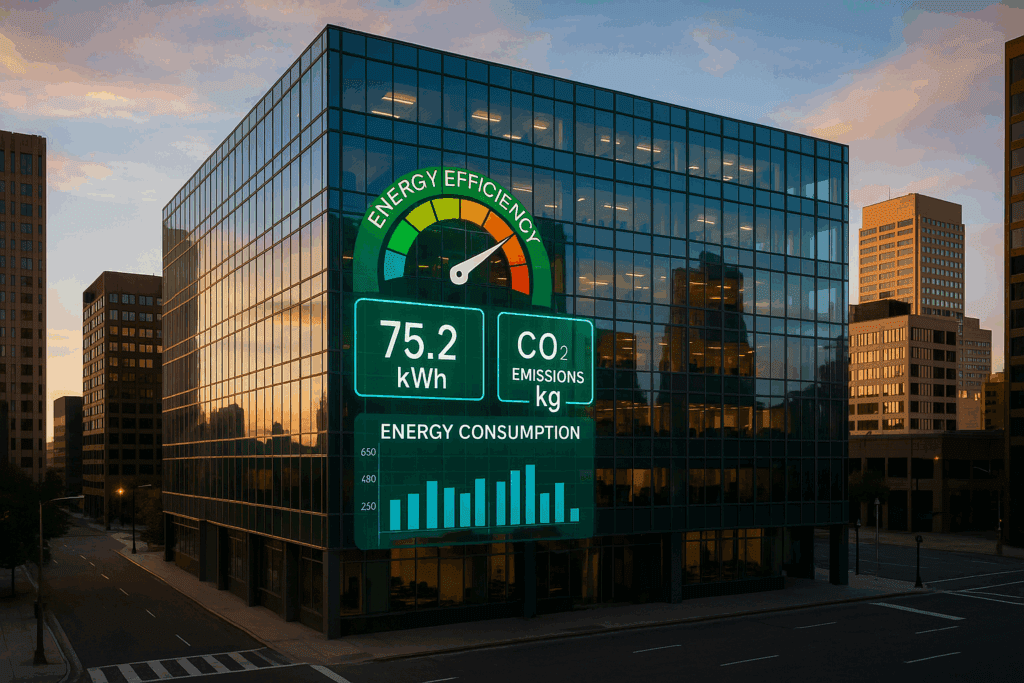
If you manage or own a commercial building in San Jose, Q3 2025 is your best window to act on San Jose energy audit compliance. The city’s enforcement activity is rising—and so are the risks of falling behind. With the San Jose Building Performance Ordinance 2025 officially in play, many owners are scrambling to understand what’s required. The prepared ones? They’re booking audits, reviewing their audit checklist in San Jose, CA, and sidestepping costly violations.
This blog breaks down why Q3 is the most strategic time to schedule your audit—and how it helps you avoid San Jose commercial building audit violations. (Want to know your audit costs? Use our Instant Audit Pricing Tool after section 3 for a quick answer.)
You’ve likely heard about the San Jose audit requirements for buildings, but Q3 isn’t just about deadlines—it’s about leverage. The Q3 audit window gives you breathing room to meet all compliance requirements before they bite. Take Marco, a downtown property owner, whose December 2024 delay cost him $5,000 in fines—and forced him to pay for a second audit under stricter 2025 rules. All avoidable if he’d acted in Q3.
1. Enforcement Is Rising—But Auditor Availability Won’t Last
San Jose’s Building Performance Ordinance 2025 is no longer just a policy—it’s being enforced. Non-compliance notices are increasing, and property owners who delay are playing a dangerous game of catch-up.
Right now, in Q3, you still have:
- Auditor access before the fall rush.
- Time to plan, not panic, and fix any issues found.
- Less competition for quality service providers.
Takeaway: Wait until Q4, and your audit becomes a scramble—and scrambles cost more.
2. Audits Aren’t One-Day Tasks—Q3 Buys You Breathing Room
An energy audit under San Jose’s 2025 rules isn’t a quick formality—it’s a multi-step process:
- Scheduling & documentation: 2–4 weeks
- Site visits & inspections: 1–2 weeks
- Reporting & compliance submission: 1–3 weeks
That’s 4–9 weeks without delays. Acting in Q3 ensures you’re not rushing or risking technical non-compliance due to missed details.
Takeaway: More time means more accuracy—and fewer costly mistakes.
💡 Plan Ahead Now: Get your instant audit cost estimate here before demand spikes.
3. Catch Issues Early—Fix Them Before Penalties Apply
Audits aren’t just paperwork—they uncover performance inefficiencies the city expects you to fix.
Q3 gives you:
- Time for upgrades without panic pricing.
- A chance to avoid “emergency” work that drains budgets.
- Proof of good-faith effort if improvements spill into Q4.
Takeaway: Control the process now or let penalties control you later.
4. Q3 Means First Dibs on Top Talent
As more properties fall under the ordinance, top service providers in San Jose are booking fast.
In Q3, you can:
- Choose vetted pros with proven San Jose audit services 2025 experience.
- Lock better rates before demand inflates them.
- Get full guidance through your audit checklist in San Jose, CA.
Takeaway: Early booking = better quality, better price, better compliance.
5. Q3 Delay Costs: Marco’s $5,000 Mistake
Marco’s December 2024 delay caused:
- Missed submission window.
- $5,000+ fine.
- Mandatory re-audit under stricter 2025 rules.
Takeaway: He paid twice—once in money, once in time. Don’t repeat it.
FAQ: San Jose Energy Audit Compliance 2025
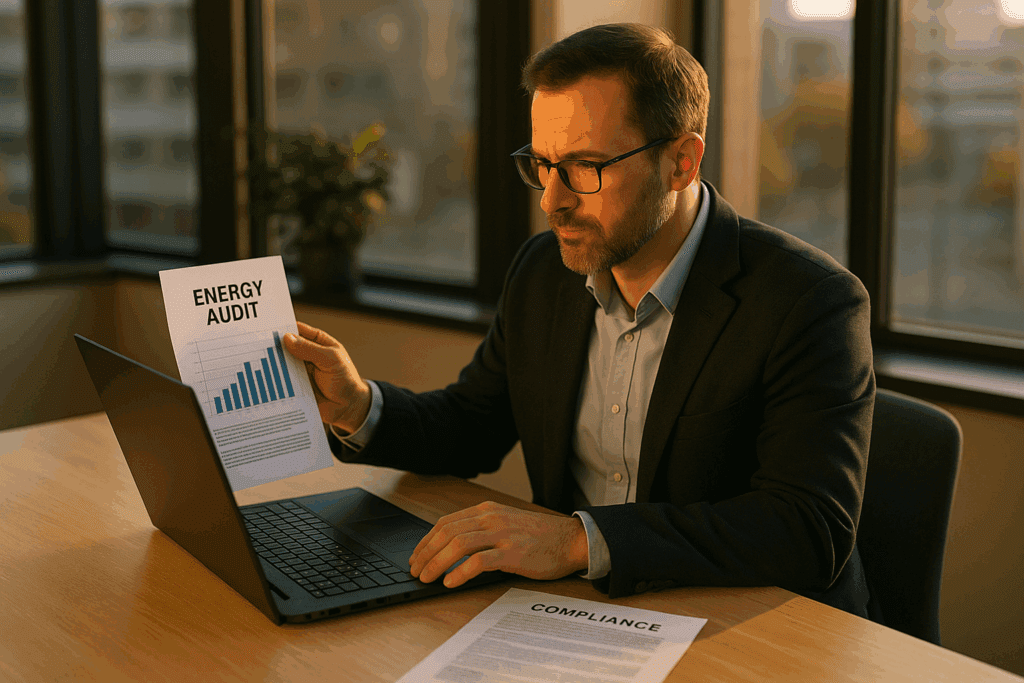
Q1: What properties are required to comply with the San Jose Building Performance Ordinance 2025?
Most commercial buildings in San Jose that are 20,000 square feet or larger fall under the ordinance. This includes office buildings, retail centers, and mixed-use spaces. Certain exemptions may apply based on occupancy type or usage intensity, but the majority of non-residential properties must schedule and complete audits.
Q2: What are the risks of missing the Q3 audit deadline in San Jose?
Missing the Q3 deadline significantly increases your risk of non-compliance. As demand spikes in Q4, it becomes harder to schedule a qualified auditor, and rushed timelines often lead to errors or incomplete submissions. In addition, late filings can trigger immediate penalties, ranging from several thousand dollars to mandatory re-audits under stricter rules.
Q3: What does the San Jose energy audit process involve?
The audit process includes an in-depth review of your building’s energy performance. This typically starts with data collection—like past utility bills and system specs—followed by an onsite inspection. The auditor evaluates key systems such as HVAC, lighting, and building envelope performance. Finally, a formal report is generated and submitted to the city for compliance.
Q4: How should I prepare for my building’s energy audit?
Start by reviewing the city’s required audit checklist. Gather at least 12 months of utility usage data and identify any recent upgrades or equipment changes. It’s also smart to meet with a compliance consultant ahead of time to flag potential issues and avoid surprises during the audit. Early preparation helps streamline the process and reduce your risk of delays.
Q5: Can I still get audited in Q4 if I wait?
Yes, you can—but with caveats. Availability of certified auditors will be limited, and many service providers will be booked solid. You’ll also face higher prices due to demand, and your timeline for making necessary building improvements will be compressed. While Q4 audits are technically possible, Q3 remains the best time to stay ahead and protect your property from penalties.
Don’t Wait Until It’s Too Late—Q3 Is Your Move
Q3 isn’t just a deadline—it’s your advantage. Acting now means lower costs, better auditors, more prep time, and zero panic. You’ve seen how delays—like Marco’s—cost thousands.
The next step is simple: lock your spot before Q4’s rush. Use our Instant Audit Pricing Tool to budget smart and stay compliant with San Jose Building Performance Ordinance 2025.
VertPro.com offers tools and services to help property owners and managers improve building energy efficiency and meet regulatory standards. Whether you’re looking for instant pricing on energy audits, need support with benchmark compliance, or want to explore available building upgrade options, VertPro® provides user-friendly technology solutions to simplify the process. Their platform helps ensure adherence to over 60 Energy Benchmarking and Efficiency Laws across the country.
Energy Audit Instant Pricing Tool. Gain rapid, precise energy audit cost estimates. Streamline compliance and reduce expenses today.


